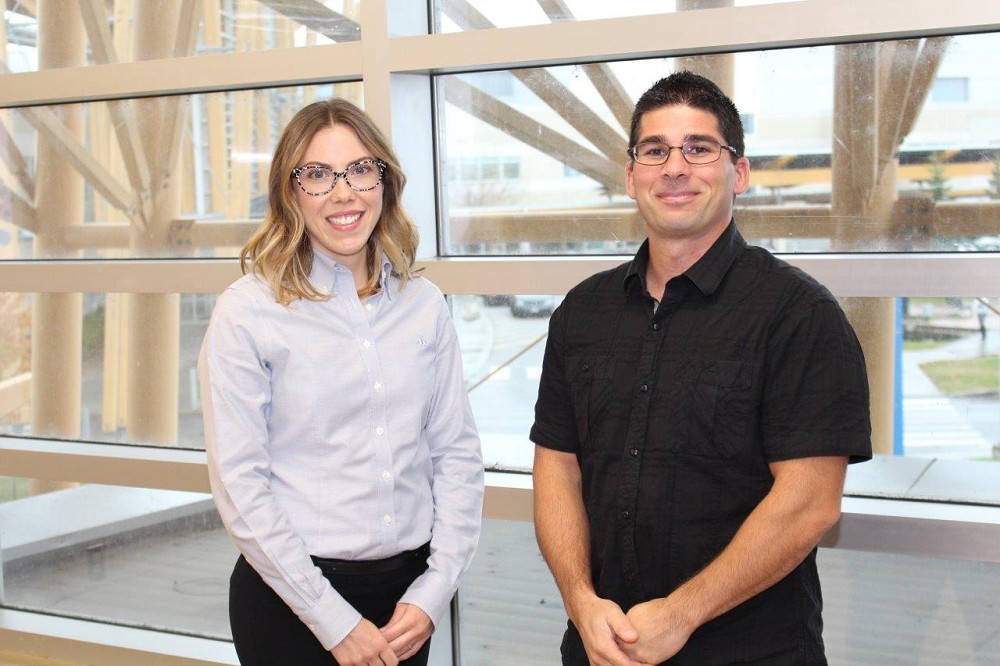Perfusionists in Training: A Step Towards Implementing Cardiac Surgery
by Maryanne Matthews
 Alexandra Brazeau and Scott Longridge are two dedicated Health Sciences Centre employees who temporarily relocated to Toronto to train as clinical cardiovascular perfusionists, which are crucial members of an open-heart surgical team.
Alexandra Brazeau and Scott Longridge are two dedicated Health Sciences Centre employees who temporarily relocated to Toronto to train as clinical cardiovascular perfusionists, which are crucial members of an open-heart surgical team.In preparation for the much anticipated implementation of cardiac surgery at the Health Sciences Centre, two highly skilled staff members were sponsored to train as clinical cardiovascular perfusionists at the Michener Institute in Toronto.
The perfusionist is trained and educated as a member of an open-heart surgical team. They are responsible for the selection, setup, and operation of a mechanical device commonly referred to as the heart-lung machine. During many types of open-heart and thoracic surgery, the patient’s heart is stopped and blood is diverted away from the heart and lungs. In effect, the heart-lung machine, and the perfusionist running it, does the pumping and breathing for the patient.
“The role of the perfusionist is very important. Without them, cardiac surgery as it exists today would not be possible,” said Arlene Thomson, Senior Director, Cardiovascular Program Development and Implementation. “It’s exciting that two people from our team are training for this profession, especially since perfusionists are in short supply across North America. It means we are one step closer to implementing the cardiac surgery program here at our Health Sciences Centre.”
For Alexandra Brazeau, a Respiratory Therapist, the opportunity to become a perfusionist was just too good to pass up. She was aware of the perfusion profession but knew that without a cardiac surgery program at our Hospital it wasn’t a viable option for her – until now. “I’m so thrilled that our Hospital chose to train current employees as opposed to recruiting an external perfusionist,” she said. “I really look forward to completing my training and being a part of the cardiovascular surgery team.”
Scott Longridge, RN and Emergency Department Coordinator also jumped at the opportunity to train as a perfusionist. “I find it very rewarding to be at the ground level of establishing such an important new program in our community,” he said. “With our aging population and the high incidences of cardiac disease in Northwestern Ontario, providing cardiac surgery here is becoming more and more crucial. It will be a huge benefit to our patients and families, and I’m happy to be a part of it.”
Alexandra and Scott are currently completing their final weeks of training in the intensive, 19 month Michener Institute program, which is accredited by the Canadian Medical Association. Upon graduation, they will be eligible to write the certification exams of the Canadian Society of Clinical Perfusion and the American Board of Cardiovascular Perfusion and they will be seconded (temporarily) to the University Health Network perfusion team to advance their skills.
To learn more about cardiovascular care at our Health Sciences Centre, visit www.tbhrsc.net